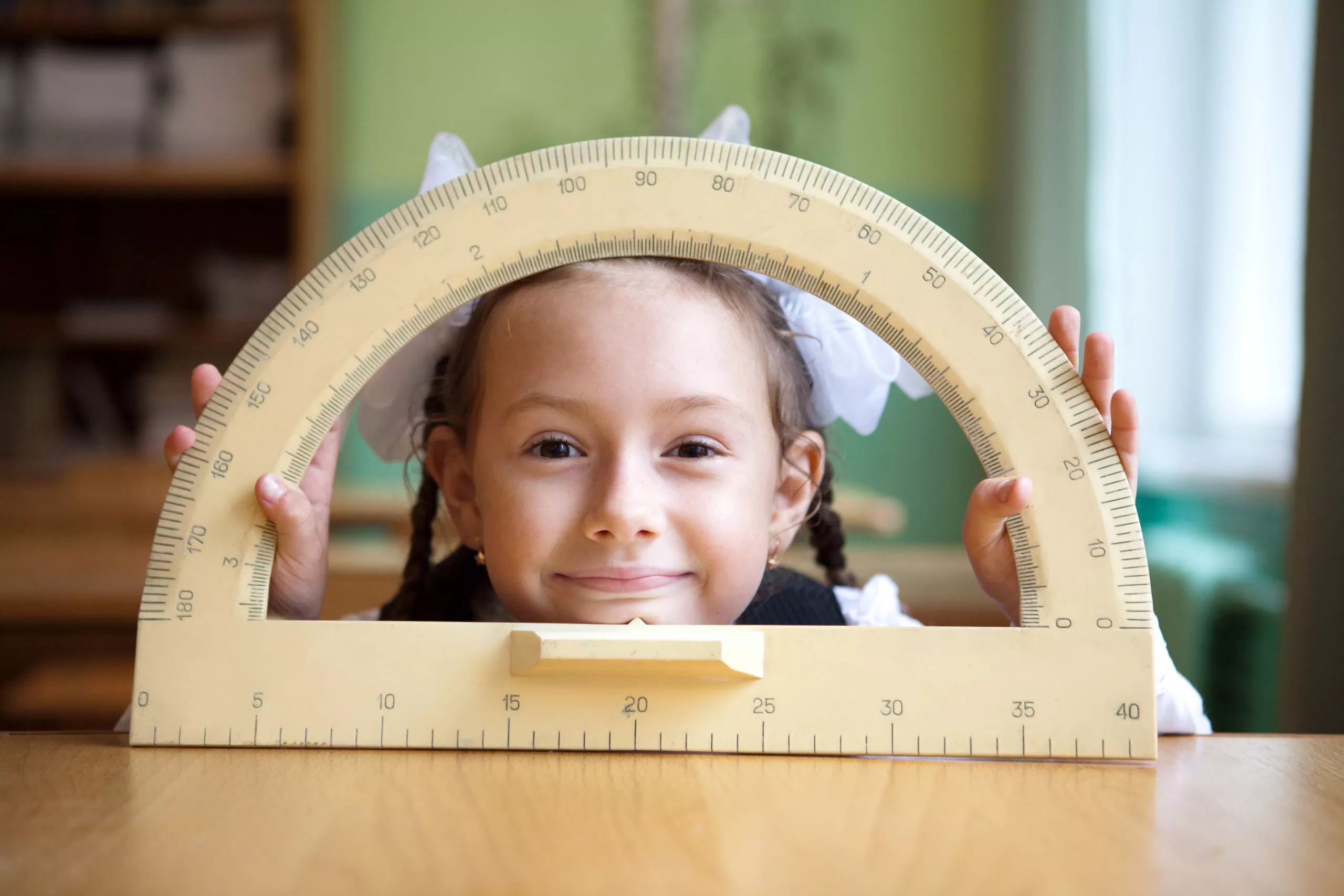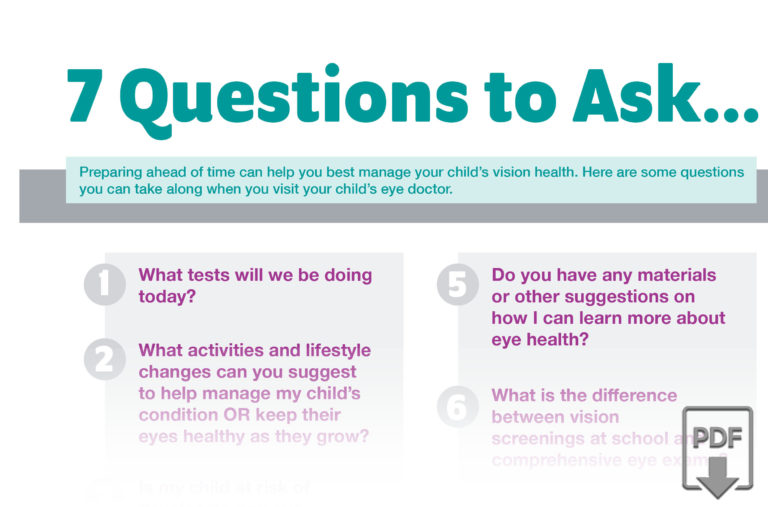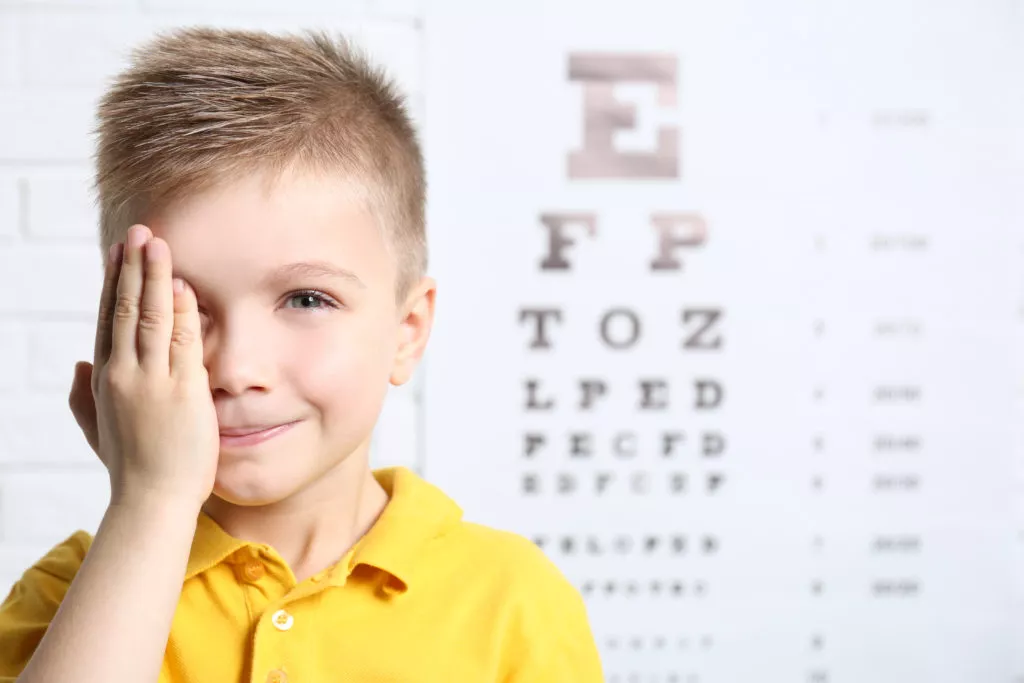
Your child probably got a vision screening at school, or during their annual wellness visit at the pediatrician. While screenings can be useful, they provide less than 4% of the information generated during a comprehensive eye exam and miss up to 75% of children with vision problems.1 Since a child’s eyes grow and change the most from 6 years of age through their teenage years2, it’s important to be alert to any changes in their vision. This article will help you understand the difference between vision screenings and comprehensive eye exams.
Vision screenings, which typically test vision by reading an eye chart from a distance like what is pictured here, measure their visual acuity. While these screenings can uncover some vision problems, they can’t measure precise changes in the child’s vision and eye growth.3 A vision screening cannot diagnose exactly what is wrong with a child’s eyes4, while an eye exam can provide a much clearer picture about a child’s overall eye health.
Vision screenings provide less than 4% of the information generated during a comprehensive eye exam and miss up to 75% of children with vision problems.5
What do eye exams include that vision screenings don’t include?
Ophthalmic trained personnel
An eye exam is completed by an ophthalmologist or optometrist with specialized equipment and procedures used for eye exams that are not included in vision screenings.6 Administrative personnel or volunteers may not be ophthalmic trained and may not be able to assess screening results.7
Specialized Equipment
Depending on what the doctor might be treating or evaluating by testing, eye exams take about an hour, and might include reading an eye chart or using a high-powered lens to visualize the small structures inside the eyes.8
In addition to visual acuity tests, eye exams also include eye teaming skills, eye movements, and accurate and comfortable focusing skills.9 This often includes a color blindness test, cover test, ocular motility testing (eye movements), Stereopsis test (depth perception), retinoscopy, refraction, autorefractors, and aberrometers, slit lamp exam and pupil dilation.10, 11
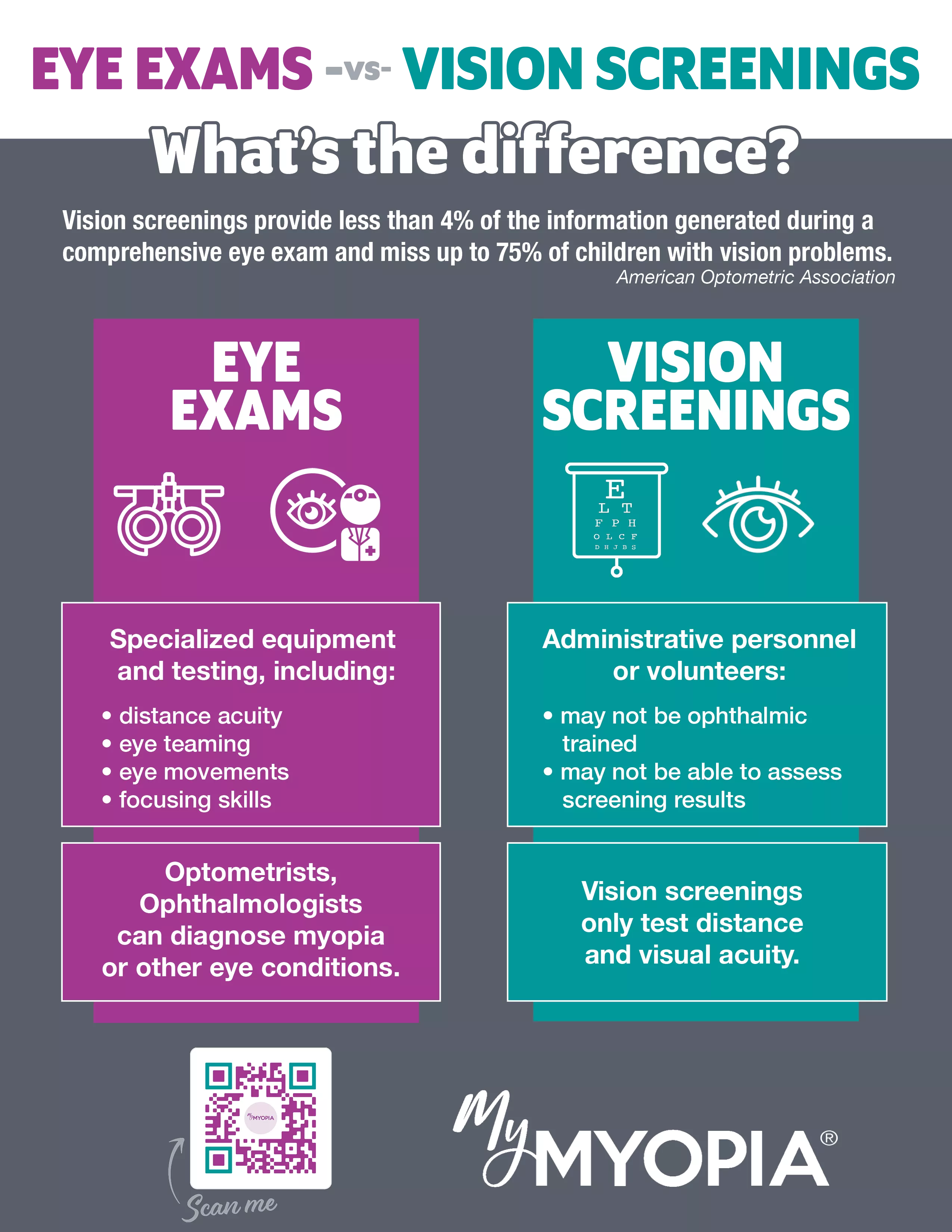
When should your child have an eye exam?
When it comes to having a comprehensive eye exam, the American Optometric Association says the sooner the better.12 Studies show a connection between poor learning and poor visual health.13 It’s recommended that children have a comprehensive eye exam by age one, according to Cleveland Clinic Pediatric ophthalmologist Elias Traboulsi, MD, MEd14, the American Optometric Association and American Academy of Ophthalmology. Children without any evident eye problems should also get another exam before kindergarten. It’s not just about whether a student needs glasses—it’s about preventive care, Dr. Traboulsi explains.15
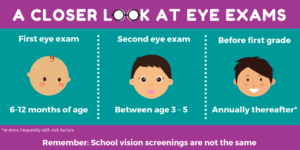
Read more: When should my child get their first eye exam
While routine school vision screenings may be helpful, they can provide parents with a false sense of security as there are a range of vision problems that may be missed. Especially in the initial stages, many vision conditions lack obvious signs or symptoms and can go unnoticed in a routine screening, causing delays in the detection and treatment of a potentially serious or life-limiting condition.16
Now that you know the importance of comprehensive eye exams, don’t forget to schedule an appointment for your child and gain a more complete sense of their ocular health. Here’s a list of seven questions you should be sure to ask during your child’s eye exam.
Click here for Eye Exams and Vision Screenings, What’s the Difference
Tags: eye exam, vision screenings, children, school, ophthalmologist, optometrist
